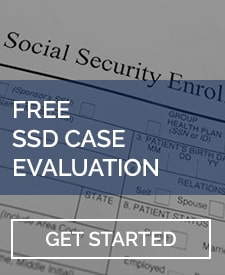Social Security Disability (SSD) is a federally mandated insurance program meant to provide both financial and healthcare assistance to individuals struggling to work. Before applying for these benefits, contact an SSD lawyer for help understanding the Social Security Administration’s (SSA’s) consideration of medical conditions posing as barriers to employment. One such condition may be related to a person’s weight: obesity disability.
Is Obesity a Disability?
Obesity disability was previously a recognized impairment by the SSA. However, in 2009 it was removed as a recognizable condition on its own. What this means is that obesity by itself is no longer considered to be a severe condition capable of keeping someone from working. But when coupled with another condition, obesity can have a major impact on whether or not an individual is approved for SSD benefits.
In terms of disability, obesity is defined as a chronic and complex disease characterized by an excessive accumulation of body fat. The SSA uses the National Institute of Health’s guidelines for
There is perhaps an obvious connection between an individual with extreme obesity and a physical condition that would limit an individual’s capacity for weight-bearing functions, such as standing and walking. However, there are other effects that may not be as obvious but can be just as harmful, including an individual’s interactions with the public, coworkers or even supervisors. As any experienced SSD lawyer will tell you, obesity is considered by the SSA for affecting not only people’s physical capabilities but also their mental capabilities.
SSR 02-1p
When the SSA reviews applications for obesity disability, the agency is required to consider the SSD rulings. These rulings or interpretations are the SSA’s way of explaining how to evaluate certain conditions. The SSA has submitted a ruling (SSR 02-1p) explaining how the agency considers an individual’s obesity in conjunction with a claim for disability benefits. The foundation of this ruling is an acknowledgment that people suffering from extreme obesity suffer from a potentially disabling condition.
Here is an example of how this ruling might work. Let’s say you have a BMI of 44.5, which puts you in the “extreme” obesity category, and you suffer from bilateral knee osteoarthritis and lumbar degenerative disc disease. Due to these conditions, you will most likely struggle with standing for prolonged periods of time, ambulating, and even lifting or bending over. Therefore, while being overweight in and of itself is not considered disabling, when combined with other physical and/or psychological conditions, oftentimes it will result in an SSA finding of disability.
If you are significantly overweight and struggling to go to work every day, you should consider applying for SSD benefits. At the LaBovick Law Group, we provide free consultations for every case. Contact an SSD lawyer at our firm today, so our legal team can assess if this program is right for you.




